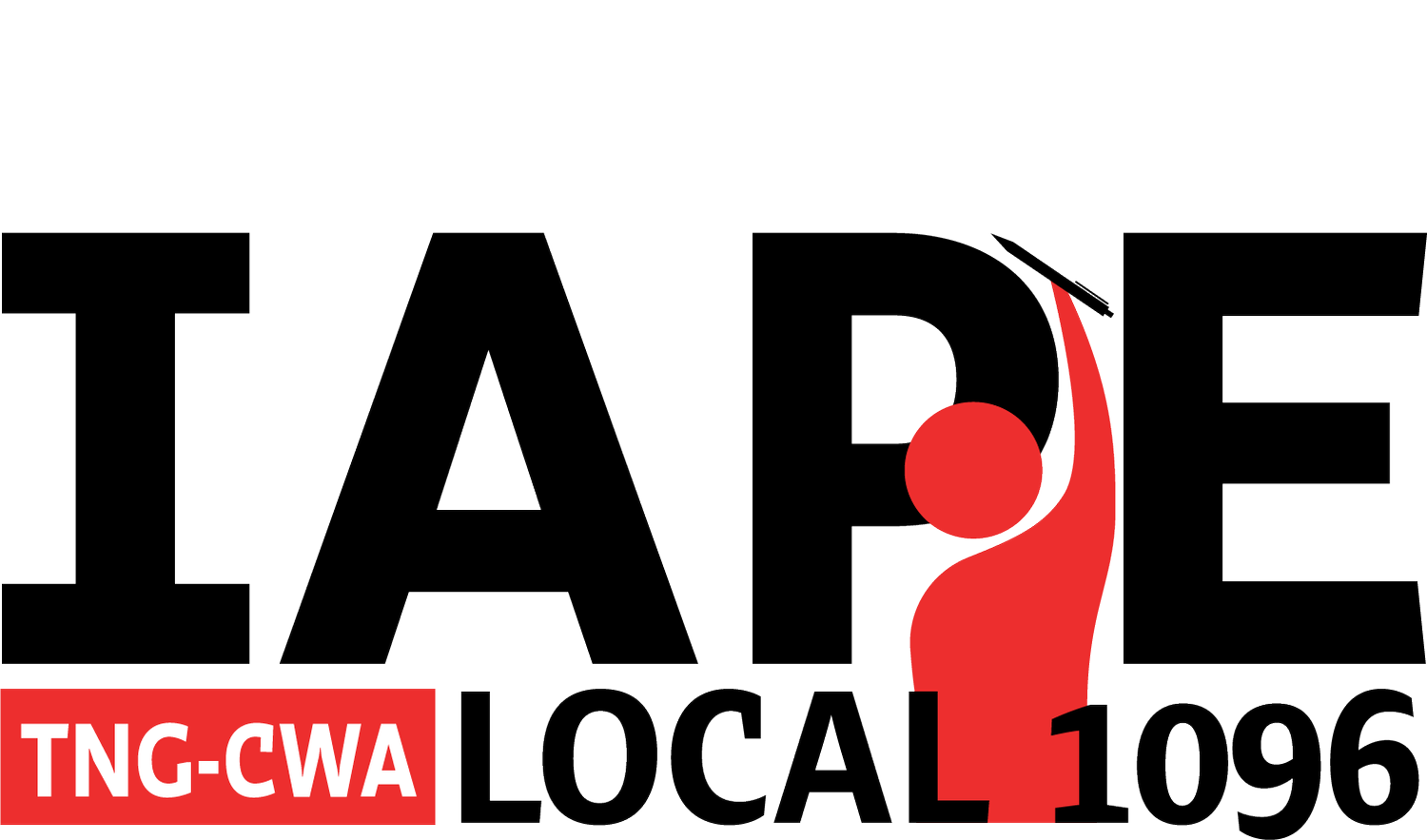News Members Weigh in on Dow Jones Proposals
IAPE Presents New Wage Offer
IAPE and Dow Jones contract negotiations continued Thursday with the union presenting a new wage offer to the company. Before it did, six Wall Street Journal reporters—Miriam Gottfried, Erin Ailworth, Ben Kesling, Kate King, Paul Kiernan, and Andrew Tangel—delivered powerful accounts of how current proposals from management have been received in the workplace.
If you weren’t one of the record-breaking 140 IAPE members who joined as open bargaining observers, you missed one heck of a presentation.
“I have given almost my entire professional life to this company,” Gottfried said to Dow Jones representatives, “and I have never felt more disrespected by its leadership.”
Gottfried explained that her job as a financial reporter requires her to parse through corporate jargon when she writes about the companies she covers. “It is insulting to me and my financially savvy colleagues when Dow Jones tries to cherry-pick data about our competitors’ contracts to position what it is offering us as a fair deal,” Gottfried said. “We know better.”
Ailworth emphasized the need for a flexible in-office working policy. “I sit in a row that was originally meant to house three people and now houses four. Our smaller desk spaces are, I kid you not, marked off with blue painter’s tape.”
“You already know what would fix this,” Ailworth said. “A work-from-home policy that gives employees more flexibility. It would also result in a defacto pay increase for many who could forgo some commuting and childcare costs.”
In addition to the need for increased pay and better working conditions, Ailworth noted the recent “brutal” and “unfeeling” layoffs of News colleagues in Washington as detrimental to WSJ culture.
“Do better,” Ailworth said as she ended her statement. “Be accountable. Uphold the ethics and standards we are known for.”
Kesling reminded management that its proposal to dramatically increase health care premiums for employees with dependents will ultimately “affect all members,” and noted that, as a Marine Corps veteran, he has opted to make use of Department of Veterans Affairs benefits rather than rely solely on company-provided coverage.
On the subject of reporters writing books and management’s reluctance to negotiate over derivative rights, Kesling said, “The company’s efforts to chop away at book and film contracts and to whittle down what reporters can do related to literary and film projects is something that many union members don’t realize until they embark on a project.”
“We must continue to fight to make sure the company doesn’t throttle these opportunities,” Kesling said. “We will continue to fight to retain the flexibility and incentive to pursue such projects.”
King also spoke about the importance of preserving affordable health care coverage for Dow Jones employees, saying, “The company’s proposed 30% hike to health insurance premiums for families is particularly troubling.”
After explaining how her family has made use of Dow Jones coverage, King said, “These aren’t Cadillac plans,” and noted, “my husband and I have spent tens of thousands of dollars on medical bills over the last several years.”
“Given that our pay increases have fallen far behind inflation and the rising cost of living, I fear that this erosion in benefits would force some to find better paying jobs elsewhere,” King said.
Kiernan talked about the impact the increased cost of living has had on IAPE members, noting that, despite merit increases, his salary “has fallen 7.6% since 2019 because of inflation.”
Kiernan, a recipient of one of the recent layoff notices in Washington, who has since been rehired, also talked about the impact layoffs have had on fellow members at his location. “I recently saw a really tough, fearless reporter break down in the office because they thought their job might be at risk,” Kiernan said.
Closing out the series of statements from WSJ reporters, Tangel explained he decided to get involved with the IAPE negotiations “because the company’s proposal is so insulting to many reporters in the newsroom.”
“Look, we’re not stupid,” Tangel said. “We read our own newspaper. We not only understand how inflation works, we routinely explain it for our readers. Your proposal effectively cuts our pay and total compensation.”
Tangel turned his focus to a particularly objectionable portion of the company’s economic proposal, asking whether its offer of a 0.25% lump sum was “a joke” worth “maybe a couple hundred bucks” after taxes.
As for management’s decision to offer a wage proposal without any retroactive pay adjustment, Tangel said, “How much interest has that cash been earning Dow Jones over the past months and months?”
“This just seems like a middle finger.”
Following the presentations, IAPE rep Tim Martell reminded Dow Jones negotiators of the union’s challenge during a bargaining session on Feb. 8: “meet us on our proposals and we’ll be able to discuss wages.” Noting that the company withdrew its proposal to eliminate contractual protections for all benefits during last week’s bargaining session, Martell said that, as a result, the union has decided to modify its wage proposal.
The new IAPE offer: 9% effective—and retroactive to—July 1, 2023, followed by raises of 7% on July 1, 2024 and 7% on July 1, 2025.
The company, for its part, had little to say about the union’s proposal, with representatives saying they needed to “take it back” for discussion with Dow Jones execs.
Open Bargaining resumes on Thursday, Feb. 29.



